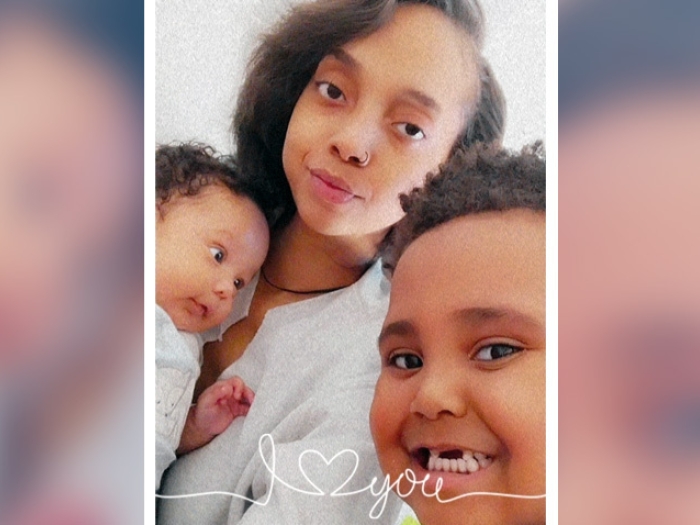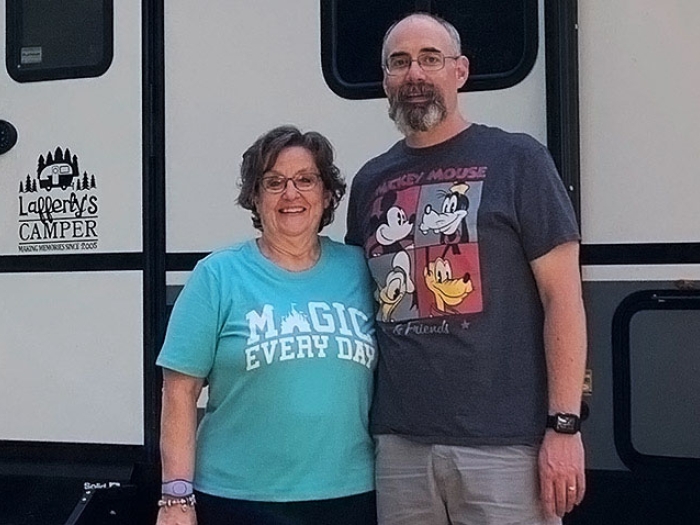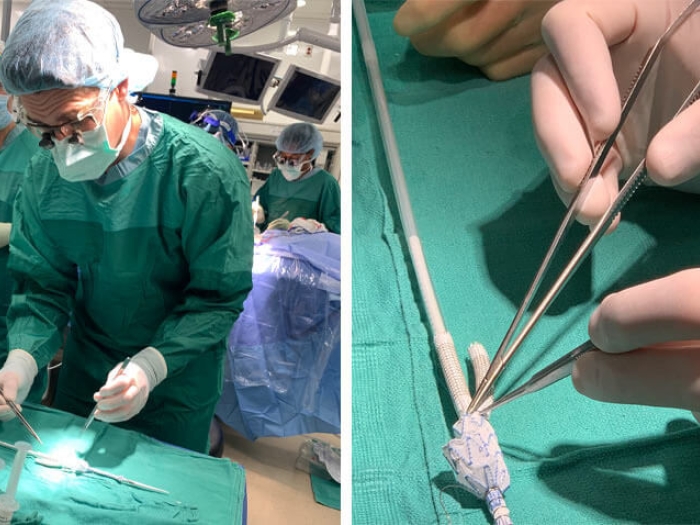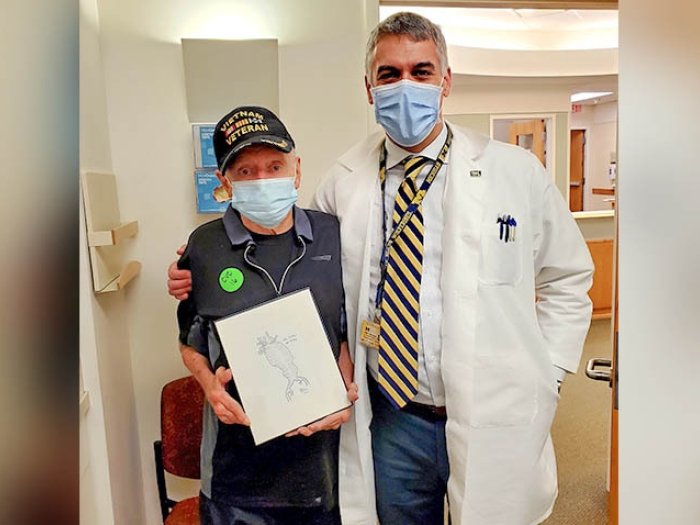Eight members of a family tested positive for a genetic defect that can lead to deadly aortic disease. Michigan Medicine has helped them stay well for nearly a decade.
7:00 AM
Author |

Teamwork is the name of the game when it comes to the Aleo family.
And that's exactly what they brought to the University of Michigan Frankel Cardiovascular Center nearly four years ago when we first told their story.
MORE FROM MICHIGAN: Subscribe to our weekly newsletter
On April 15, 2013, 15 members of the Aleo family gathered at the cardiovascular center to support Denise Aleo, who was having surgery to repair a descending aortic aneurysm.
The family drew attention not only for its size, but also because each visitor wore a maize and blue T-shirt that read, "We Love Team Patel." The words were in reference to Himanshu Patel, M.D., a cardiac surgeon set to perform surgery on Denise that day.
It was neither the first nor the last time Patel would come into their lives.
Family ties
Over the past eight years, the Aleo family has developed a close relationship with Patel, a renowned expert in aortic surgery. Prior to treating Denise, Patel repaired aortic aneurysms in Denise's brother, Sam, and her sister, Teri.
All three Aleo siblings, as well as five of their nine children, have tested positive for a thoracic aortic genetic disorder caused by a defect in the SMAD3 gene.
The SMAD3 gene defect can result in a connective tissue abnormality. Connective tissue makes up bones, tendons, ligaments and skin, as well as blood vessels, which is why the disorder can result in life-threatening aortic issues. Early detection is key.
When found early, physicians can monitor and treat aortic aneurysms. Eventually, the aneurysm will need to be surgically repaired to prevent life-threatening events such as an acute aortic dissection or rupture of the aorta.
The prospect of a SMAD3 defect requires affected families to be vigilant, says cardiovascular center genetic counselor Rajani Aatre, M.S., M.Sc.
"First-degree relatives (parents, siblings and children) of a person carrying the gene defect have a 50 percent probability of having it, too, and have the greatest chance of developing an aneurysm," Aatre says. "This is why they need to be screened."
A blood test can detect the defect.

Ongoing concerns
The Aleo family continues to face heart issues. Teri underwent surgeries to repair an aneurysm in May and July 2015, and Denise, now 57, underwent a second surgery in November of that year for an aortic root aneurysm.
SEE ALSO: Observe or Operate? When an Enlarged Aorta Requires Action
Most recently, Denise's 37-year-old son, Tony, had his aortic valve replaced with a mechanical valve after experiencing a ruptured aorta in August.
Family members with symptoms take medication for high blood pressure, commonly associated with the condition. They also receive regular surveillance imaging to monitor existing aneurysms or look for new developments.
Members of the Aleo family praise the treatment they've received at U-M as unparalleled, even in the face of uncertainty.
"Dr. Patel told my brother he didn't know if I'd come off the table," says Teri, 58, the first in her family to be diagnosed with a descending aortic aneurysm — and who was treated in 2009 at the cardiovascular center.
"They saved our lives."
Patel says caring for the Aleo family has allowed his team to learn more about SMAD3 and its effects on patients' health.
"With the family's involvement," he says, "we have been able to reach out to colleagues at the University of Texas Health Science Center at Houston who conduct basic research on the effects of SMAD3 on the aorta."
Sharing their story
With teamwork comes the prospect of cheerleading.
In addition to maintaining a positive outlook to cope with the stress of living with a serious genetic disorder, the Aleos are willing to openly discuss the condition to promote wider awareness.
"Our condition and information about the SMAD3 gene mutation is gaining attention," says Teri, noting that the recent death of actor Alan Thicke from a ruptured aorta has spread the word to a wider audience. "People reach out to me when they find out I have the condition and want to know more about it."
She's happy to share her story, with the hope that it will help save a life.

Explore a variety of health care news & stories by visiting the Health Lab home page for more articles.

Department of Communication at Michigan Medicine
Want top health & research news weekly? Sign up for Health Lab’s newsletters today!





